IDL Dental Implants
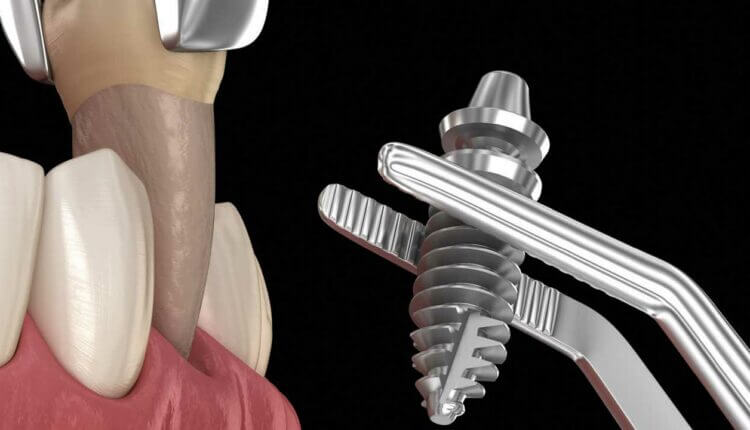
What Are IDL Dental Implants?
IDL is a dental implant company that specializes in providing innovative solutions for dental implantology and oral tissue regeneration. Founded in Israel in 2008, IDL distinguishes itself with its innovative and biologically driven approach to implantology. They have earned a dedicated following among dental professionals who appreciate its unique perspective on dental implant solutions. Their emphasis on simplicity, predictability, and esthetic outcomes is particularly appealing to clinicians who understand that dental implants may require servicing over time, whether it’s the replacement of worn parts or repair due to unforeseen issues.
Whether you have a IDL implant already surgically placed in another clinic, or are looking to repair a damaged IDL implant, there are some things you should know before seeking a dental professional:
- Who Needs IDL Dental Implants?
- What Are Alternative Dental Implant Brands If I Do Not Choose IDL Dental Implants?
- How Much Do IDL Dental Implants Cost?
- What Are The Steps In The IDL Dental Implants Procedure?
- What Are Common Problems With IDL Dental Implants?
- How Long Do IDL Dental Implants Last?
If you have any further questions about IDL Dental Implants or other dental services offered at Atlas Dental, please contact us.

Free phone consultation
Have questions about dental implants? Schedule a free phone consultation with our Toronto dentist.

5 star google reviews
Our patients love us! See for yourself why people are choosing Atlas Dental in Toronto for dental implants.

Dental Implant Emergency service
Broke a tooth and need a dental implant? Book an emergency appointment today.
Who Needs IDL Dental Implants?
IDL dental implants are a remarkable dental innovation that can benefit a wide range of individuals dealing with tooth loss or other dental conditions. If you find yourself in any of the following situations, IDL dental implants might be the ideal solution for restoring your smile and improving your quality of life.
- Individuals with Missing Teeth: Dental implants are an excellent option for people who have lost one or more teeth due to various reasons, such as dental decay, gum disease, or dental trauma. Whether you’re missing a single tooth or multiple teeth, IDL implants can provide a stable and long-lasting replacement, effectively filling the gaps in your smile.
- Those Seeking a Permanent Tooth Replacement: Unlike traditional dentures, which may require frequent adjustments and replacements, IDL dental implants offer a fixed and permanent solution. The implant post’s integration with the jawbone ensures a secure foundation for the restoration, eliminating worries about slipping dentures or discomfort during speech and eating.
- Individuals with Failing Teeth: If you have severely damaged or decayed teeth that cannot be restored through conventional dental procedures, IDL dental implants can be an effective alternative. Rather than undergoing repeated treatments, opting for dental implants can be a one-time investment in your oral health.
- Patients with Unstable Dentures: For individuals who currently wear removable dentures and experience difficulties with stability or discomfort, IDL dental implants can offer a life-changing improvement. Implant-supported dentures provide a secure fit, reducing irritation to the gums and enabling you to enjoy your favorite foods without constraints.
- Those Looking to Preserve Jawbone Health: When you lose a tooth, the underlying jawbone can begin to deteriorate due to lack of stimulation. IDL dental implants prevent this bone resorption by stimulating the jawbone, preserving its density and structure. This essential benefit helps maintain facial aesthetics and prevents the sunken appearance that often accompanies missing teeth.
- Patients with Healthy Gums and Adequate Bone Density: For IDL dental implants to be successful, having healthy gums and sufficient bone density is crucial. Before proceeding with the implant procedure, your dentist will evaluate your oral health and jawbone structure to ensure you are a suitable candidate for dental implants.
- Those Seeking Natural-Looking Results: IDL dental implants offer a natural-looking and seamless smile restoration. The dental restorations are customized to match the color, shape, and size of your existing teeth, creating a harmonious and attractive smile that boosts confidence and self-esteem.
- Individuals Committed to Oral Hygiene: To ensure the long-term success of IDL dental implants, maintaining good oral hygiene is essential. Individuals willing to commit to regular dental check-ups, daily brushing and flossing, and following their dentist’s recommendations are more likely to enjoy the full benefits of their dental implants for many years to come.
IDL is a trusted dental implant brand for a wide range of individuals dealing with tooth loss or other dental conditions. If you have missing teeth, unstable dentures, or are seeking a permanent solution for tooth restoration, IDL dental implants may be the answer you’ve been looking for. However, it’s crucial to consult with a qualified dental professional to assess your specific dental needs and determine if dental implants are the right option for you. If you have further questions about IDL Dental Implants, please contact us.
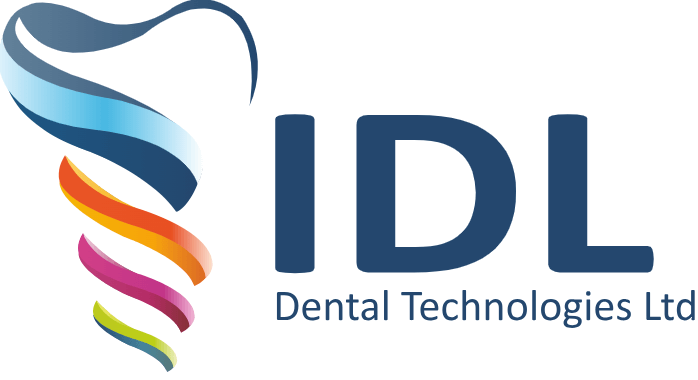
What Are Alternative Dental Implant Brands If I Do Not Choose IDL Dental Implants?
There are many reputable dental implant brands and manufacturers to consider. Each brand offers its own range of implant systems, materials, and technologies. Here are some alternative dental implant brands that are well-regarded in the field of dental implantology:
- Ankylos: Ankylos, also part of Dentsply Sirona, is known for its reliable implant systems with a track record of success.
- Astra Tech: Astra Tech, part of Dentsply Sirona, is recognized for its high-quality implant systems known for precision and long-term success.
- BioHorizons: BioHorizons is an American dental implant company known for its innovative dental implant technologies, such as the Laser-Lok surface treatment, enhancing implant stability and tissue attachment. They offer various implant systems to suit different patient needs.
- Bicon: Bicon Dental Implants is an American company recognized for its innovative short dental implant system. Their unique design philosophy aims to simplify the implant placement process while providing reliable results.
- CAMLOG: CAMLOG is a Swiss implant manufacturer that offers a variety of implant systems, including the CAMLOG and CONELOG systems, known for their precision and clinical reliability. They focus on quality and precision in implantology.
- Hiossen: Hiossen is a South Korean dental implant manufacturer known for its cost-effective and reliable implant systems, such as AnyRidge and AnyOne. They emphasize innovation and clinical research.
- Implant Direct: Implant Direct is an American dental implant manufacturer known for its wide range of implant solutions, emphasizing affordability and innovation.
- Megagen: Megagen is a Korean dental implant manufacturer known for its cost-effective and reliable implant systems, such as AnyRidge and AnyOne. They are committed to research and development.
- Neodent: Neodent is a Brazilian implant manufacturer known for its high-quality implants, including the Neodent Grand Morse and Neodent Drive systems. They prioritize quality and innovation.
- Nobel Biocare: Nobel Biocare is a Swedish global leader in implant dentistry, known for its innovation and high-quality dental implant systems. They offer a wide range of implant solutions, including the NobelActive and NobelParallel systems.
- Osstem: Osstem is a South Korean dental implant manufacturer that offers a range of implant solutions, including the TSIII and Hiossen lines, known for their quality and affordability. They emphasize research and development.
- Straumann: Straumann is a renowned German dental implant manufacturer, offering a range of implant solutions known for their premium quality. In addition to their premium line, they also offer the more cost-effective Etkon implant line.
- Zimmer Biomet: Zimmer Biomet is a well-established Polish medical devices company offering dental implant systems with a strong focus on quality and innovation.
When considering dental implant brands, consult with an experienced dental professional to determine which implant system best suits your specific needs and treatment goals. They can provide guidance on the advantages and characteristics of each brand to help you make an informed decision about your dental implant treatment. If you have further questions about Dental Implants brands, please contact us.
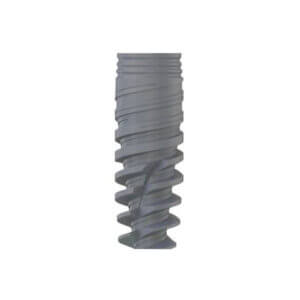
Cost of Dental Implant
A Dental Implant often involves multiple components and fees including tooth removal (code 71201), the dental implant placement (79931), bone grafting (72421) and the dental implant crown (27215). Therefore, depending on your needs, the cost of a single tooth dental implant can range between $4165 to $5222. The codes relevant to dental implants in the Ontario Dental Association’s Suggested Fee Guide appear as follows:
Removals, Erupted Teeth, Complicated
- 71201 – Removals, Erupted Tooth, Surgical Approach, Requiring Surgical Flap and/or Sectioning of Tooth: $307
Implants, Osseointegrated, Root Form, More than one component
- 79931 – Surgical Installation of Implant with Cover Screw – per implant: $1785+ Dental Materials Expense (approximately $350)
Alveolar Bone Preservation – Allograft
- 72421 – First tooth: $450 + Dental Materials Expense (approximately $300)
Crowns, Porcelain/Ceramic/Polymer Glass Fused to Metal
- 27215 – Crown, Porcelain/Ceramic/Polymer Glass Fused to Metal Base, Implant-Supported: $1280 + Dental Lab Fee + Dental Materials Expense (approximately $750)
In Ontario, most dentists will provide basic dental surgery and restorative dental services consistent with the Ontario Dental Association’s Suggested Fee Guide, such as dental emergency examinations, dental x-rays and tooth extractions, to ensure fair and competitive treatment cost. The Ontario Dental Association’s Suggested Fee Guide is a proposed fee structure that dentists in Ontario may or may not follow. Please consult with your dentist about fees before going ahead with treatment.
Each dental implant surgery case is unique. Depending on your unique circumstance, implant surgery may be more difficult and more expensive if any of the following is required:
- CBCT scanning
- Computer guided implant surgery
- Immediate implant placement following tooth extraction
- Bone grafting to prevent bone loss
- Bone regeneration to grow new bone
- Simultaneous gum graft procedures
- Immediate tooth replacement at the time of surgery
- Sinus lifting procedures to raise the maxillary sinus floor
Dental Implant services are usually considered a supplementary service by dental insurance plans and may or may not be covered by your dental insurance. Be sure to find out from your dental insurance plan provider how much you are eligible for before going ahead with dental treatment. Your dentist can help you submit an predetermination to your dental insurance.
For patients without dental insurance, Atlas Dental is pleased to offer dental financing through Dentalcard. Affordable payment plans start at 7.95% for terms of 6 months to 6 years. To learn more about Dentalcard dental treatment financing, follow this link.
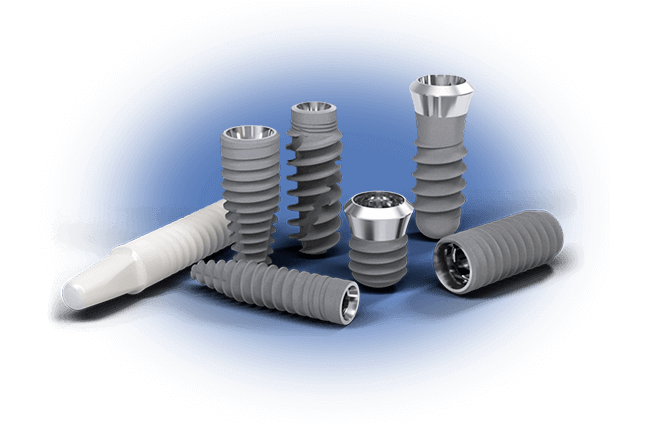
What Are The Steps In The IDL Dental Implants Procedure?
The IDL dental implant procedure is a well-orchestrated process that involves multiple stages, each crucial to ensuring a successful and long-lasting outcome. From the initial consultation to the final restoration, your dental team will guide you through the journey, making your dental implant experience as comfortable and effective as possible. Let’s explore the step-by-step process of getting dental implants and uncover the transformative path to a radiant and functional smile.
- Initial Consultation and Treatment Planning: The first step in the IDL dental implant procedure is a comprehensive consultation with your dentist or oral surgeon. During this appointment, your dental professional will thoroughly examine your oral health, take X-rays or CBCT 3D scans of your jawbone, and discuss your dental history and treatment goals. This evaluation is essential to determine if you are a suitable candidate for dental implants and to create a personalized treatment plan that addresses your specific needs. Computer guided dental implant surgery may be required in difficult implant sites. Before your visit, please read and follow our pre-operative instructions.
- Preparing the Implant Site: Before the implant placement, any remaining damaged or decayed teeth at the implant site will be extracted, if necessary. In some cases, bone grafting, indirect sinus lifting, or other procedures may be performed to augment the jawbone if there is insufficient bone density to support the implant.
- Implant Placement: The actual IDL implant placement is a minor surgical procedure that is typically performed under local anesthesia. During the procedure, the dentist or oral surgeon will make a small incision in the gum to expose the jawbone. Then, a small hole is carefully drilled into the bone, and the IDL implant post, is inserted into the prepared site. The gum is then sutured closed, and the healing process begins. After receiving your IDL dental implant, please read and follow our post-operative instructions to ensure proper healing.
- Osseointegration: After the IDL implant is placed, the process of osseointegration begins. Over the next several weeks or months, the IDL implant post fuses with the jawbone, creating a strong and stable foundation for the dental restoration. During this healing period, a temporary restoration may be provided to maintain aesthetics and function.
- Attaching the Abutment: Once osseointegration is complete, the gum is reopened to expose the IDL implant post. An abutment, a small connector piece, is attached to the implant. The abutment will serve as the anchor to which the final dental restoration will be secured.
- Dental Restoration Placement: After the abutment is in place, your dentist will take impressions of your mouth to create your custom dental restoration, such as a dental implant crown, dental implant bridge, or denture. These restorations are meticulously designed to match the shape, size, and color of your natural teeth, ensuring a seamless and aesthetically pleasing smile. Once the restoration is ready, it will be attached securely to the abutment, completing your new smile.
- Follow-Up Care and Maintenance: After the dental implant crown procedure is complete, your dentist will provide you with post-insertion care instructions. It is crucial to follow these guidelines diligently to promote proper healing and minimize the risk of complications. Regular dental check-ups, professional cleanings, and good oral hygiene practices are essential to maintaining the health and longevity of your dental implants.
The surgical and restorative procedure for IDL dental implants is a carefully orchestrated process that offers a transformative solution for missing teeth. From the initial consultation to the final restoration, your dental team will guide you through each stage, ensuring your comfort and satisfaction at every step. IDL dental implants provide a durable, natural-looking, and functional replacement for missing teeth, allowing you to reclaim your smile and enjoy life with newfound confidence and ease. If you have further questions about IDL Dental Implants, please contact us.
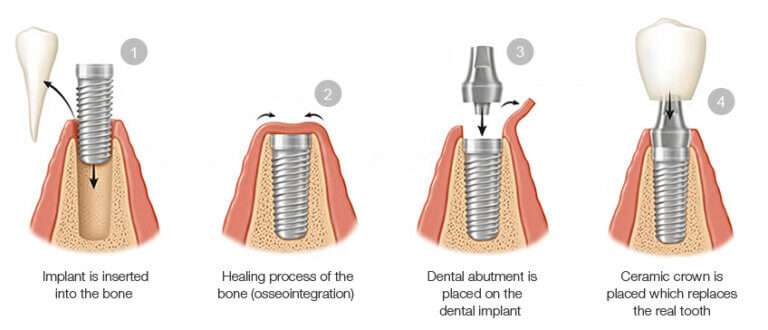
What Are Common Problems With IDL Dental Implants?
While dental implants are a highly successful and widely practiced dental procedure, like any medical intervention, they do come with potential risks and complications. It is essential to be aware of these factors to make an informed decision about whether IDL dental implants are the right choice for you. Your dentist will thoroughly evaluate your oral health and medical history to minimize these risks and ensure a successful outcome.
- Surgical Risks: The surgical placement of IDL dental implants is generally safe, but as with any surgery, there are inherent risks. These risks may include infection, excessive bleeding, nerve damage, and injury to nearby structures. However, skilled and experienced dental professionals take necessary precautions to minimize these risks and ensure your safety during the procedure.
- Implant Failure: Osseointegration, the process where the IDL implant post fuses with the jawbone, is vital for the success of dental implants. While dental implants are known for their long-term success, there is a small possibility of implant failure. Implant failure may occur shortly after the procedure or years later. Factors contributing to implant failure include infection, implant fracture, poor oral hygiene, and excessive biting forces. If an implant fails, it may need to be removed, and the area may require additional treatment before attempting another implant placement.
- Infection and Peri-Implantitis: Infections can occur at the implant site, just like with any surgical procedure. In some cases, an infection called peri-implantitis may develop, which is a severe inflammation of the tissues surrounding the implant. Peri-implantitis can cause bone loss and lead to implant failure if not treated promptly.
- Nerve Damage: During the implant placement, nearby nerves may be at risk of injury. Nerve damage can result in numbness or tingling in the lips, chin, tongue, or other areas of the mouth and face. Though rare, this complication can be a cause for concern and requires immediate attention if it occurs.
- Sinus Complications (For Upper Jaw Implants): For IDL dental implants placed in the upper jaw, there is a risk of complications involving the sinus cavity. If the implant protrudes into the sinus cavity or causes sinus issues, additional treatment may be necessary to address the concern.
- Allergic Reactions: In very rare cases, some individuals may experience allergic reactions to the materials used in dental implants, such as titanium or certain components of the dental restoration. For these special circumstances, we offer zirconia dental implant alternatives.
While IDL dental implants offer numerous advantages and have a high success rate, understanding the potential risks and complications is essential in making a well-informed decision about your dental treatment. The vast majority of patients undergo dental implant procedures without significant issues, and any risks are carefully assessed and minimized by experienced dental professionals. If you have further questions about Dental Implants, please contact us.
How Long Do IDL Dental Implants Last?
The lifespan of IDL dental implants can vary depending on various factors, including the individual’s oral hygiene practices, overall health, and the quality of the implant procedure. In general, IDL dental implants have a high success rate and can last for many years, and in some cases, a lifetime with proper care and maintenance.
Studies have shown that dental implants have a success rate of over 95% after ten years, and many implants last for much longer. However, it’s essential to understand that no dental restoration can guarantee a lifetime of use, and some implants may experience complications or require replacement over time.
To maximize the longevity of dental implants, it’s crucial to:
- Practice Good Oral Hygiene: Regular brushing, flossing, and dental check-ups are essential to maintaining healthy gums and supporting the long-term success of dental implants.
- Avoid Habits That Can Damage Implants: Chewing on hard objects, using teeth as tools, and clenching or grinding teeth (bruxism) can place excessive stress on dental implants, potentially leading to complications.
- Visit Your Dentist Regularly: Regular dental check-ups allow your dentist to monitor the health of your implants and address any concerns early on.
- Follow Post-Operative Care Instructions: After implant placement, following your dentist’s post-operative care instructions will help ensure proper healing and reduce the risk of complications.
- Manage Systemic Health Conditions: Certain medical conditions, such as uncontrolled diabetes or autoimmune disorders, can affect the success of dental implants. Managing these conditions in collaboration with your healthcare providers can be beneficial.
- Avoid Smoking: Smoking has been linked to a higher risk of implant failure. If you are a smoker, quitting can improve the long-term success of your dental implants.
It’s important to note that individual responses to dental implants can vary, and some factors beyond your control may affect the lifespan of your implants. If you experience any issues with your IDL dental implant, such as pain, swelling, or a loose implant, it’s crucial to contact your dentist promptly for evaluation and appropriate treatment. If you have further questions about IDL Dental Implants, please contact us.
We also think you’ll like…
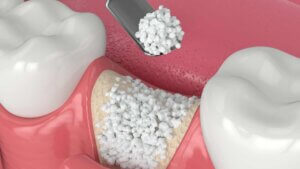
Bone Graft Post-Operative Instructions
Bone Graft Post-Operative Instructions What You Should Do After Your Dental Bone Graft Surgery Alveolar bone preservation is a dental procedure that involves placing a bone
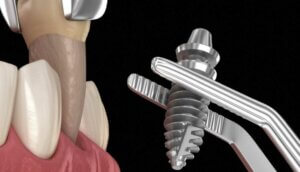
Euroteknika Dental Implants
Euroteknika Dental Implants What Are Euroteknika Dental Implants? Euroteknika (ETK) is a dental implant company that specializes in providing innovative solutions for dental implantology and
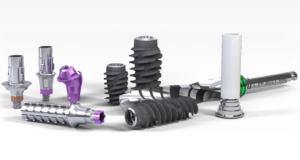
Straumann Dental Implants
Straumann Dental Implants What Are Straumann Dental Implants? Straumann is a well-established and globally recognized dental implant company that specializes in providing innovative solutions for
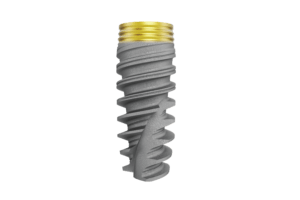
Nobel Dental Implants
Nobel Dental Implants What Are Nobel Dental Implants? Nobel Biocare is a renowned and globally recognized dental implant company that has played a pivotal role
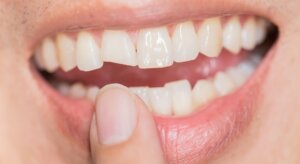
Chipped Dental Implant Crown
Chipped Dental Implant Crown What Is A Chipped Dental Implant Crown? A dental implant crown is a prosthetic device used to replace a missing tooth.
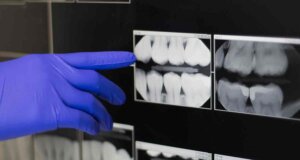
Digital Dental X-Rays
Digital Dental X-Rays What Are Digital Dental X-Rays? Dental X-rays have been an essential tool in dentistry for decades, aiding dentists in detecting various oral

